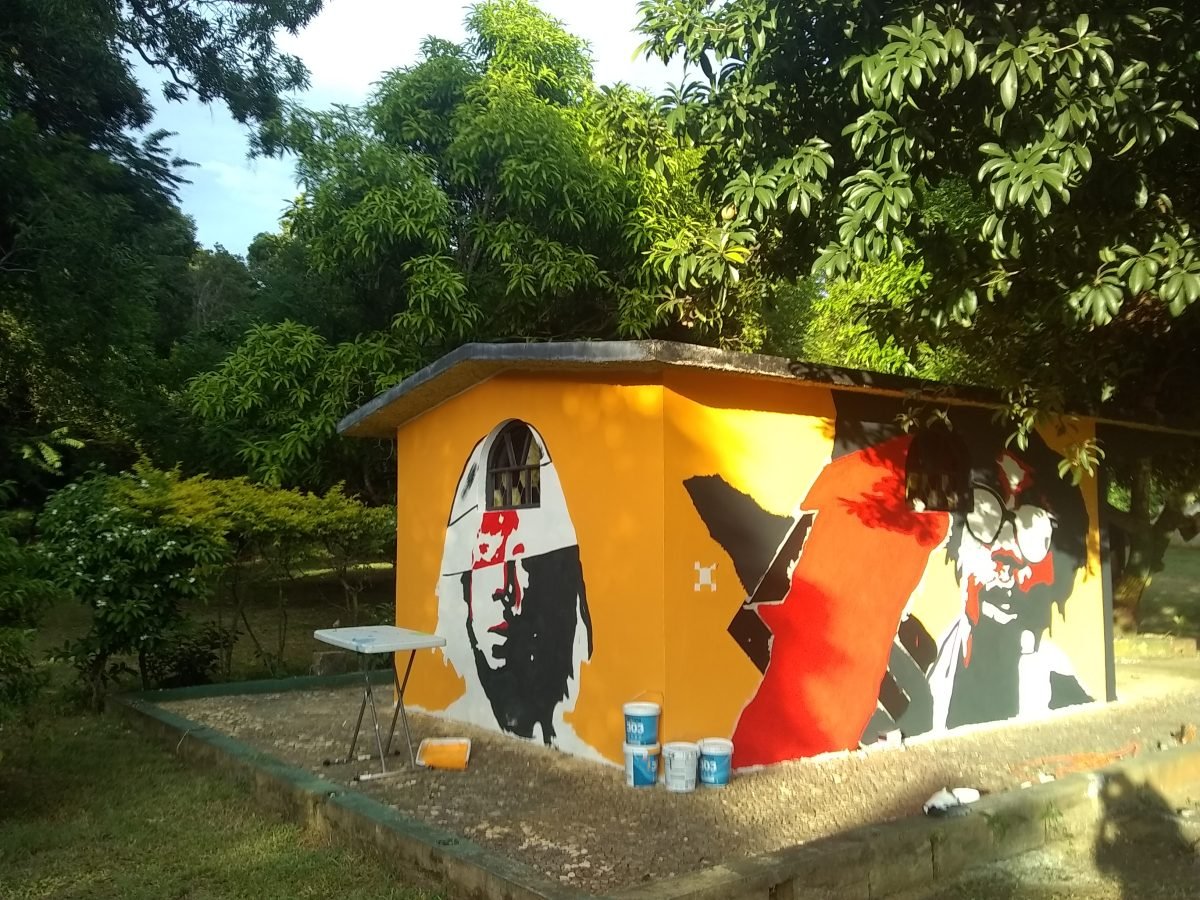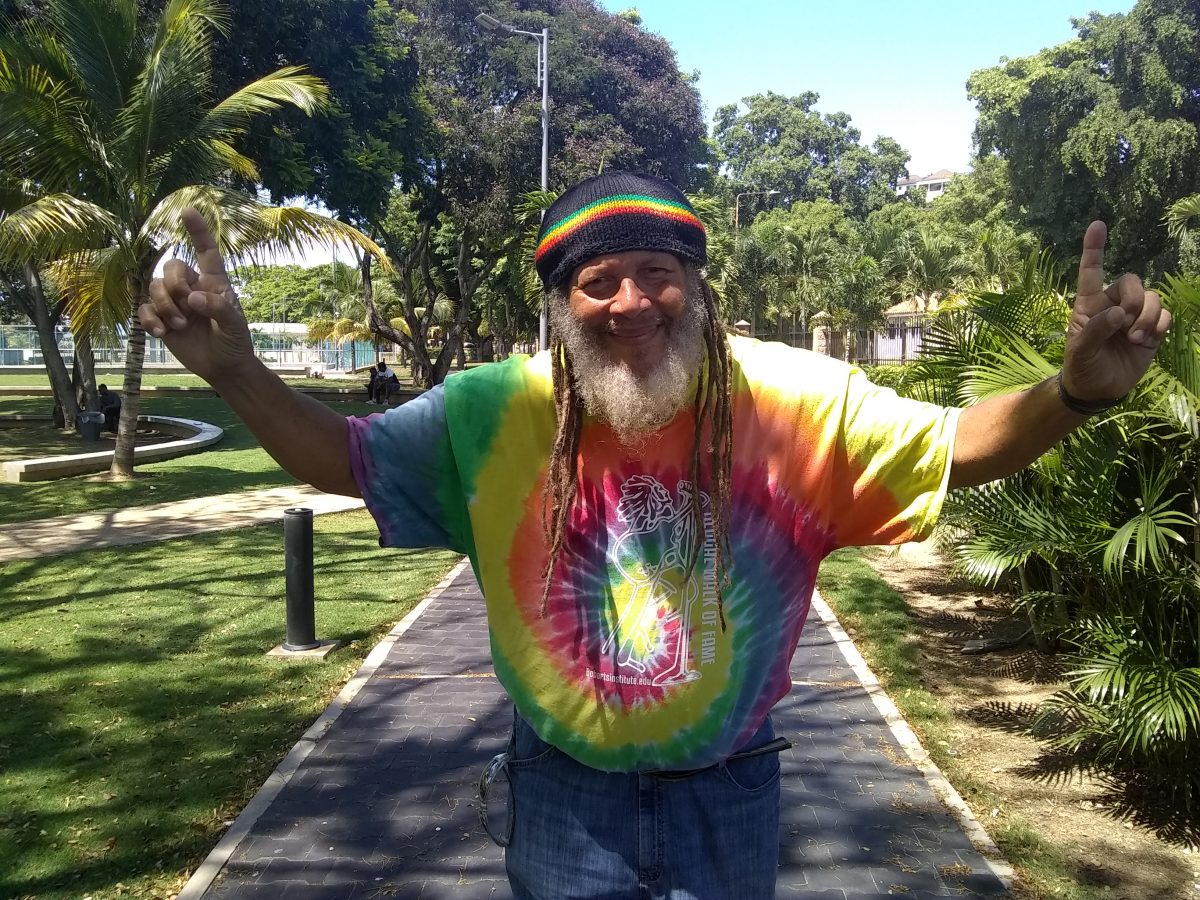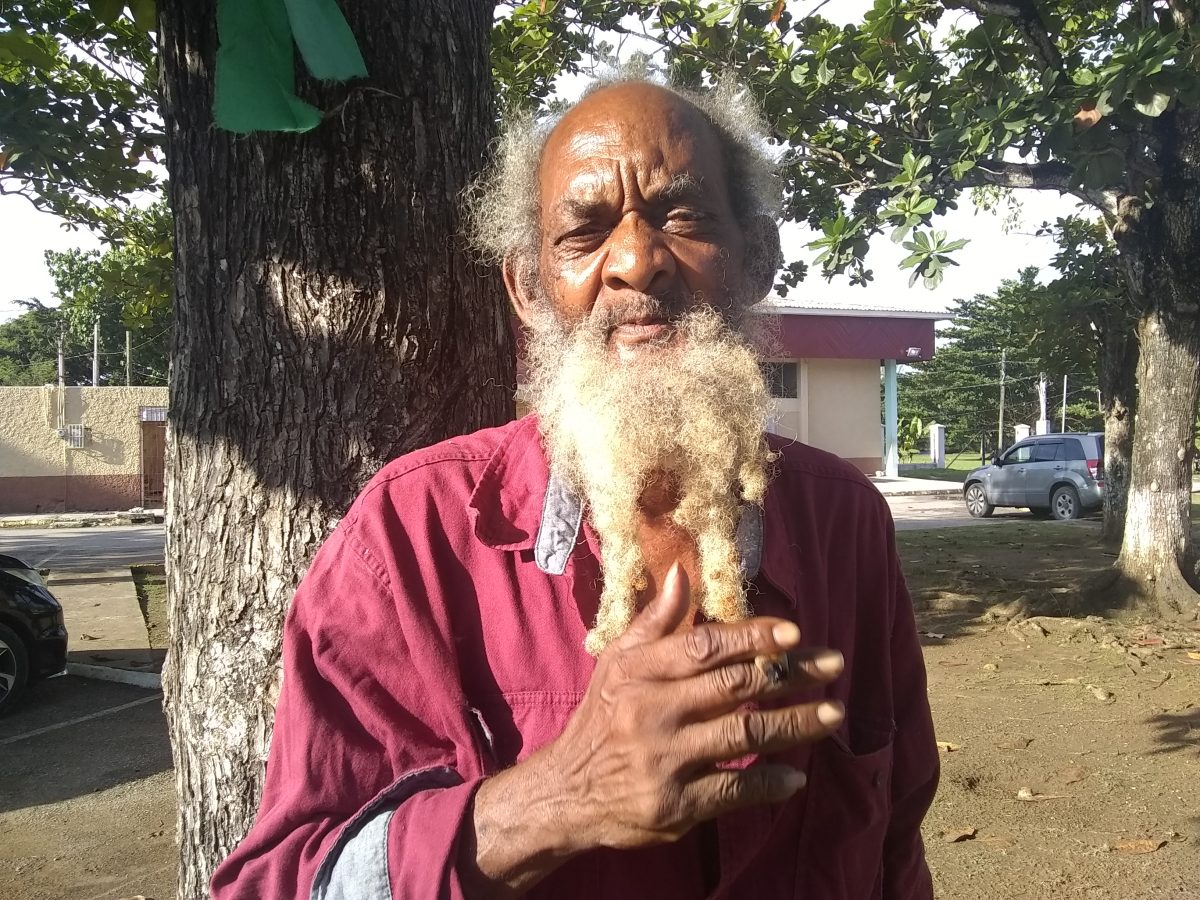Andrew Tosh Says Peter Tosh Mausoleum Will Be Reopened In 2024

Andrew Tosh, singer and son of Reggae legend Peter Tosh, has indicated that the Peter Tosh Mausoleum, the site of his father’s final resting place in Belmont, Westmoreland, will be reopened for public tours in the new year, and will eventually have a museum erected there.
“We are getting ready to open it officially next year – at the beginning of next year,” Tosh told DancehallMag during an interview following his performance at the Peter Tosh 79th birthday celebrations in Belmont.
As it relates to clamors for a Peter Tosh Museum to be erected on the lands that house the mausoleum and the property where Peter’s mother once lived, Andrew said that it will manifest.
“Definitely for sure. The museum will be a reality for sure,” he emphasized.
A beautification project for the Peter Tosh Mausoleum was undertaken ahead of his birthday celebrations, which included the painting of new murals on his mausoleum, the erection of a new iron gate, and the painting of the walls at the entrance to the property.
A Peter Tosh Museum was officially opened back in November 2016, at the Pulse Centre at Trafalgar Road in Kingston, to honour the life and works of the Westmorelite.
However, many of Peter Tosh’s parishioners, as well as members of the Rastafarian faith, believe that the museum ought to be located in Westmoreland, where the Legalize It singer was born and later buried, among them Reggae Walk of Fame conceptualizer Ras Astor Black and two-time Peter Tosh awardee, Ras Iyah V.
“Peter Tosh is bigger than that and the museum should be at his property in Westmoreland where he is buried. It would be overrun with Peter Tosh fans. And it needs to be made friendly, so people from Negril, people going Treasure Beach; people going Whitehouse can visit,” Astor had told DancehallMag in a recent interview.
“The TPDCo could assist in creating the right atmosphere down there and make it happen, because it could bring more tourists,” he had added.
For his part, Ras Iyah V had said that the area stretching outwards from Belmont to the South Coast and Negril, was akin to a “gold mine”. He said that he said that the Peter Tosh property in Belmont should be similarly developed like the Bob Marley Museum, which among other things, offers a guided tour and houses a juice bar and spaces for purchasing Marley memorabilia.
“It is the same way I seh Peter Tosh place should be marketed and be utilised where when you visit you can get pictures of Peter Tosh to buy; you can get him with him M-16 guitar. Even if you have a little place in Kingston, the museum needs to be in Belmont. Look at Bob, they created their own space,” he argued.
“I have said that before… Kingston is a place where a lot of things happen. People go there fi all different things. But here it is now we have our gold mine inna Belmont in the form of a Peter Tosh museum. Why should we bring it to Kingston when it is the community that produced Peter?” Iyah V had added.
Ras Iyah V also said that Belmont would also benefit even greater from cultural and community tourism, just from having the Peter Tosh museum there.
“When you come, if you want fish, if you want ital food, there are restaurants right around the area. Some people have guest houses; you have small hotels, so you have little shop. Some people might come, and might want some ackee, some soursop, some lime. Everything natural is there. But, Peter Tosh Ganja museum, is the nucleus around which everything revolves. It is just to market it,” he added.
The Peter Tosh Museum in Kingston was reopened on October 19, Peter Tosh’s birthday, after being closed in 2020, during the COVID-19 pandemic.
The museum houses some of Peter Tosh’s memorabilia including musical instruments, recordings, documents, song books, memorabilia, and personal items such as tour jackets and his unicycle, and his iconic M16-shaped guitar, which, according to the BBC, “was given to Peter Tosh in 1983 by a fan who claimed he was inspired by Peter Tosh hit song Coming Hot”.
Peter it is said, upon receiving the instrument, had said he would use it as his “musical weapon”.
Also called the Steppin’ Razor guitar, it was a major feature on many of Tosh’s performances until he was murdered in 1987.


